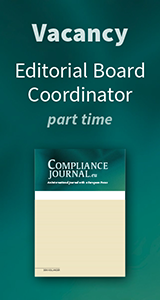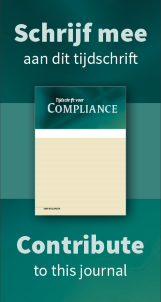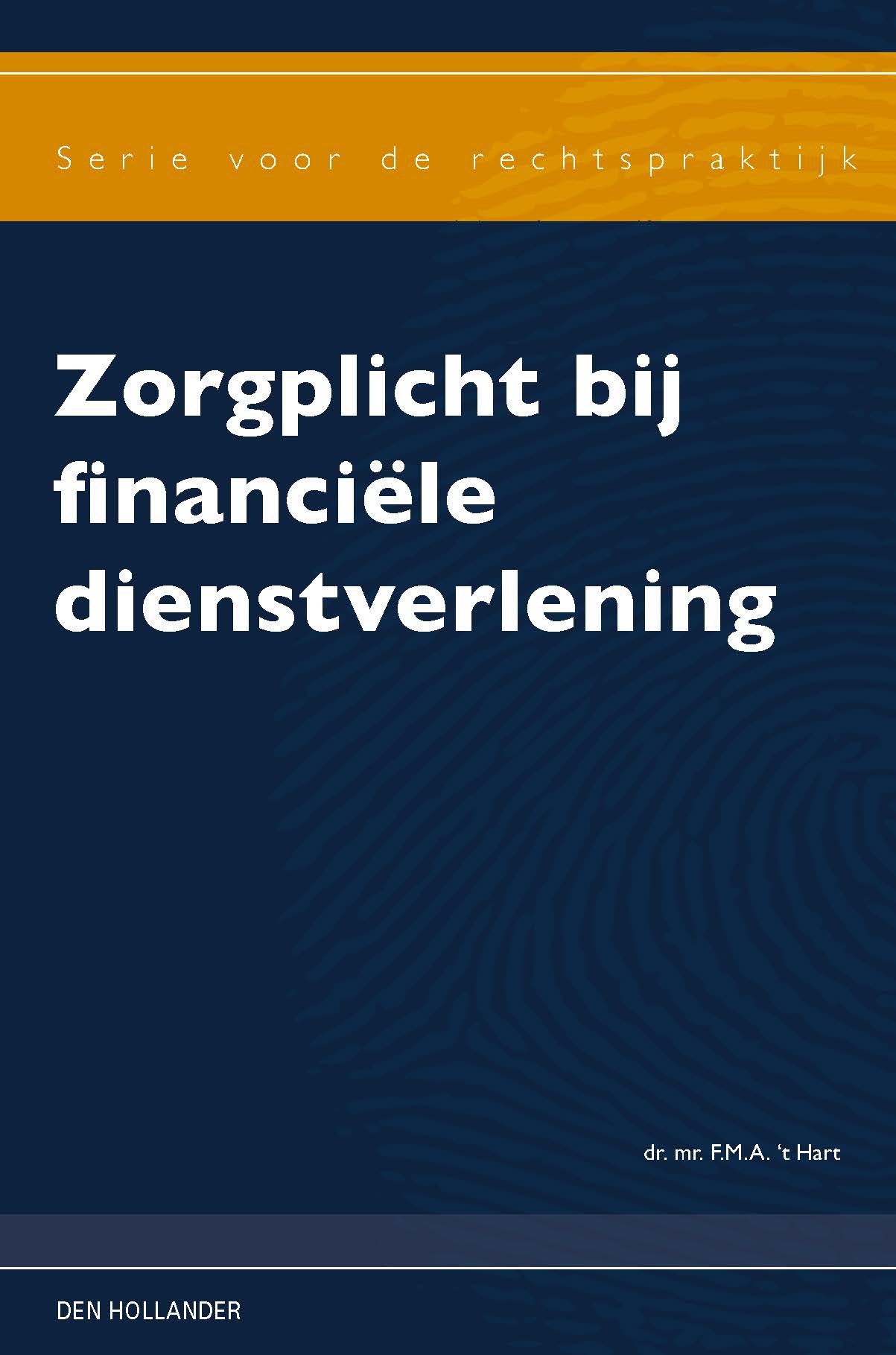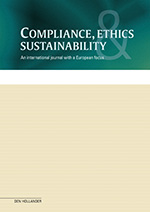Corporate governance and stakeholder management
Peter-Jan Engelen, Sam Curtis and Frank Segers Het artikel is in de opmaak van het tijdschrift rechts als pdf beschikbaar.This is the fourth issue of the Compliance, Ethics & Sustainability journal of 2024 with a focus on Corporate governance and Stakeholder Management. This edition aims to provide new insights and perspectives on these matters.
The new Dutch Whistleblower Act has been in force for some time. This Act requires employers to adapt their whistleblowing policies and to make strategic choices when publishing their own whistleblowing policies. The new law also requires choices to be made when concluding or modifying, inter alia, employment, consultancy, management and settlement agreements. Further changes are to be made shortly, which will require changes to the whistleblowing rules and will make it possible to report anonymously. In "Wijzigingen in de nieuwe wet bescherming klokkenluiders: wat verandert er nog meer voor werkgevers?" (article in Dutch) Danny Theunis explains the main changes for employers and gives guidance on how the organization can minimize the risks related to (whistleblowing) complaints.
As corporate governance is becoming increasingly moralized, corporations can easily get conflicted in their decision-making process. Doing what is (seen as) right, is no longer clear, if it ever fully was. Public and private calls to action recently are more frequent, vocal and are often directly aimed at the corporation itself, its board and its strategy development and execution. Most of these calls are well-intentioned. However, they impose new requirements that are altogether rather difficult to integrate within current business affairs. Even in cases in which these requirements are suitable for instant implementation, they do inflict additional agency costs.
That is where decision-making gets tough. In a highly competitive environment, there is not always room left, to do what is (seen as) right. Doing what is right raises existential, formal and strategic questions about (ethical) perspectives for corporate action. On top of that, corporate action requires budget. When barriers to do business rise, rational boards are likely to re-evaluate their current affairs. Local legislators often overlook that a level playing field is non-existent on a global scale. If local conditions reach a certain threshold, re-evaluations potentially include decisions on relocation.
Only those corporations that are both able and willing to comply with increasing standards of doing what is (seen as) right actually have room left to act upon their (moral) views. In the article "Room left to do what is (seen as) right?" Ruben van der Lecq aims to provide a general direction for corporate action in the age of moralized corporate governance. The Dutch corporate governance landscape is taken as an example to illustrate practical implications for boards and their compliance functions.
The compliance officer and the internal auditor have an important role to play in identifying behavioral risks. In the second and third line of defense, supplemented by the auditor, there are gains to be made in the field of cooperation. It is obvious that the second and third lines and the auditor actively discuss the design and quality of risk management. This also applies in the area of behavior and culture, which is the area in which the root causes of risky behavior are found. However, this discussion between the second and third lines and the auditor is not always sufficiently conducted, research shows. The second and third lines and the external auditor can provide each other with information and support each other in their conversation with the first line risk owners. This offers opportunities for a better understanding and management of risk, including - or indeed - when it comes to causes or patterns in behavior and culture. Conversely - if the conversation in the chain does not take place effectively - this leads to additional risks. In "Met de accountant op het pad van gedrag en cultuur: compliance officer, internal auditor en accountant, versterk samen de keten!" (article in Dutch) Carolien Merkens, Marlène Jans, Finfola Planting and Carole Wishaupt make clear where the opportunities and risks lie. And what steps the compliance officer can take to strengthen the chain.
In recent years, numerous corporations have been implicated in significant unethical behaviors. For instance, Volkswagen was found guilty of manipulating emissions tests, misleading millions of consumers and regulators. Wells Fargo engaged in widespread fraud creating millions of unauthorized bank accounts to meet aggressive sales targets. Unethical behavior in these types of organizations is almost to be expected given their competitive environment.
Given the nature of their existence nongovernmental organizations (NGOs) are sometimes naively expected to be immune from unethical behavior. However, recent scandals at Oxfam, Amnesty International and Médecins Sans Frontières show that NGOs also face pressures—whether from donors, public expectations, or internal targets—that can lead to unethical behavior.
In the article "Navigating the Halo Effect: Balancing morality and ethical risks in purpose-driven organizations" Isabel de Bruin Cardoso delves into the relationship between perception of organizational purpose and ethical behavior. It explores how a glorified perception of an organization's mission, values, and people can lead to a halo effect, which may inadvertently justify or overlook unethical practices.
Organisations of all kinds are increasingly focusing on diversity. However, it is not easy to analyse and measure the diversity within an organisation. Frank Segers, Sam Curtis and Tooske den Hollander spoke with Michael Walmsley, the Chief Experience Officer of Diversity Atlas to discover his insights in "'Why would you want to measure diversity?".
A large number of books and articles have appeared in business ethics that address pressing issues in a practical way and make concrete recommendations for promoting the ethics and integrity of organizations and their employees. Not everyone knows where to find these publications or has time to read them. That's why Edgar Karssing regularly looks for the Compliance, Ethics & Sustainability Journal in the bookcase of business ethics and discusses an article or book. In this issue Edgar Karssing discusses (the reception of) the book Moral ambition (Article in Dutch). Stop wasting your talent and make work of your ideals by Rutger Bregman and the article Why are benefactors so annoying? by Roos Vonk.
We hope you find this issue insightful and engaging.
Sam Curtis, Peter-Jan Engelen & Frank Segers




